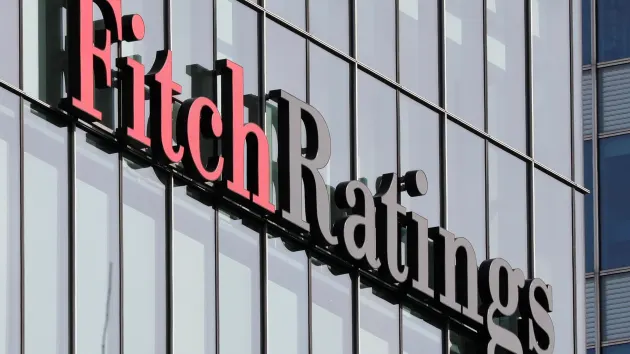Fitch Downgrades U.S. Credit Rating
Written By: Matt Jaskolka

Fitch, along with Moody’s and Standard & Poor’s, are credit rating agencies that rate the viability of investments relative to the likelihood of default. Last week, Fitch Ratings downgraded the United States credit rating from the top category of AAA to AA+. This downgrade indicates a decrease in the creditworthiness of the U.S. government and its ability to repay its debt obligations. This news spooked investors, causing the Nasdaq to fall 2.1%, the Dow slipped about 1.0%, and the S&P 500 pulled back by 1.3%. Is this the start of another tough stretch in the equity markets or is this a false alarm that investors are giving too much credit to? Today’s article is going to focus on the potential consequences that could result from a rating drop to the world’s greatest economy and how it affects everyone else.
- Higher Borrowing Costs: A credit downgrade can lead to an increase in the interest rates the U.S. government has to pay on its debt. This happens because investors may demand higher returns to compensate for the perceived risk associated with lending to a government with a lower credit rating. This is why you see some companies (and sovereign countries) offer bonds with a very high yield, or interest payments. As an investor, if I am going to take on the risk that you might not pay me back, I demand that you pay me more for that risk. As we know, the U.S. has a problem of not addressing its stratospheric debt, and a lower rating is not going to help. Higher borrowing costs can put pressure on the Federal budget and can potentially lead to higher deficits.
- Market Volatility: A credit downgrade can create uncertainty in the financial markets. If you remember my article on Roth Conversions which is located here, we understand that the nemesis of the stock market is uncertainty. As we have seen in the equity markets last week and this week, this uncertainty has caused an increase in market volatility. Coming off a difficult year in 2022, 2023 has been very fruitful to clients’ portfolios. This reinforces the power of staying invested when things seem to be at their worst and why we build financial plans tailored to every client’s unique situation.
- Impact on Global Markets: The U.S. dollar is the global reserve currency, and U.S. treasuries are considered one of the safest assets in the world. A credit downgrade could erode confidence in these assets and lead to shifts in global investment patterns. Other countries may reevaluate their reliance on U.S. assets, potentially affecting exchange rates, trade, and global economic stability. This can also strain the stability of other financial institutions who often use treasuries as collateral. A downgrade could trigger changes in collateral requirements, affecting liquidity and the functioning of the financial markets. We learned this week that Fitch is also examining the health of several mid-sized regional banks as well as a few of the larger national banks. Although with minimal impact to everyone outside those directly affected, let’s not forget what happened in March. Headlines that mention bank problems give an instant flashback to 2007 and 2008 and the pain that ensued.
- Political and Policy Implications: A credit downgrade could lead to increased scrutiny of government fiscal policies and political decision-making. As if on cue, the current Administration was quick to downplay the downgrade from Fitch while the GOP was quick to point fingers. Obviously, this does no one any good as it does not provide an accurate assessment of the potential problems something like a downgrade could cause. Therefore, policymakers might face pressure to implement measures that improve the government’s financial position and restore investor confidence.
- Long-Term Economic Effects: The cumulative impact of higher borrowing costs, reduced investor confidence, and potential market disruptions could impact economic growth over the longer term. If higher interest rates persist, they will continue to affect consumer borrowing costs, the housing markets, and business expansion plans. Headlines like these can influence consumer and business behavior dramatically.
It is clearly in the best interest of the United States to retain its status as the world’s reserve currency and the best place to invest. It’s important to note that the actual impact of a credit downgrade depends on various factors, including the severity of the downgrade, the response of policymakers, the overall economic context, and global market conditions. In 2011, the U.S. experienced a credit downgrade from Standard and Poor’s, moving from AAA to AA+. While this event did create some market turbulence, the U.S. remained a reliable borrower, and its overall financial stability was not severely compromised which allowed the United States to remain in one of the best bull markets in history for the next 10 years.
Worried about the impact of the United States credit downgrade?
Say What?
A Nevada license plate telling people to “Go back to California” was recalled by Nevada’s state DMV after receiving a complaint. The vehicle owner, whose plate reads “GOBK2CA” is appealing the recall in defense of the vanity plate. A section of the Nevada Administrative Code prohibits defamatory references to a person or group … in this case the defamed group would be Californians.
This week in history
1743 – The Louvre Museum opened in Paris.
1846 – The Smithsonian Institution was created.
1937 – First-ever electric guitar patent awarded to the Electro String Corporation.
1977– Son of Sam serial killer was arrested.
1981 – Pete Rose sets National League hits record.
Have any questions? That’s what we’re here for! Call us at 844-227-5766 today!
Get on our email list to receive these updates in your inbox!
Ready to Take The Next Step?
For more information about any of the products and services listed here, schedule a free assessment today or register to attend a seminar.

